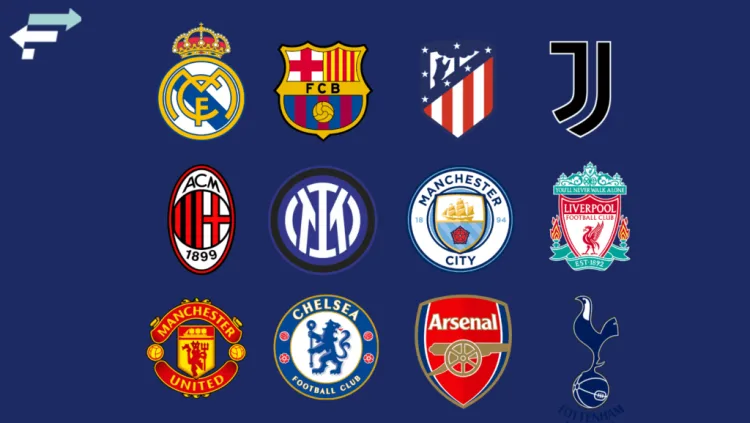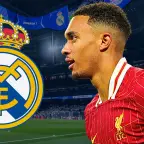-
News
- 21 hours ago
Barcelona, Real Madrid and Juventus' transfer pact that blocks Ilaix move

Ilaix Moriba will not complete a controversial transfer from Barcelona to Real Madrid this summer due to an agreement between the Clasico sides, as well as Juventus, not to try and poach each other's players.
At the moment, Barcelona, Real Madrid and Juventus are the only three teams who are yet to withdraw from the plans for a European Super League.
Madrid president Florentino Perez and Juventus chairman Andrea Agnelli were two of the main orchestrators of the plans, which have since been shelved for the time being due to the universally negative reaction from players, fans, managers, pundits and even politicians.
FOOTBALLTRANSFERS' MOST VALUABLE PLAYERS IN THE WORLD
Manchester United, Manchester City, Chelsea, Liverpool, Tottenham, Arsenal, Inter, Milan and Atletico Madrid have subsequently pulled out of the planned tournament.
Barca, Madrid, and Juve are still pushing for it to happen.
While they are in this position, they have, according to Spanish outlet Sport, agreed not to buy each other's players unless a deal is within the best interest of both clubs, like the case with Miralem Pjanic seeking a return to Juventus after flopping at Camp Nou.
One player this agreement also impacts is Ilaix, who was linked with Real Madrid after it emerged that he would likely not sign a new contract with Barcelona.
He allegedly has a release clause of £85 million (€100m), but Barcelona would be willing to accept €15m as he has less than a year on his current deal.
Unfortunately for Barcelona, Moriba is playing hardball over a new contract. He is already the highest-paid youth player in the club's history, but he wants another pay rise as well as more exposure to first-team football before he commits to a new deal.
At the moment, it appears his most likely destination is RB Leipzig.
Ever since I was little, I have looked forward to making my debut for @FCBarcelona. Thanks to Allah this has been possible. Last night was a dream come true and such a special moment for me and my family. This means so much but it’s just the start inshallah. Força Barça ❤️💙 pic.twitter.com/dtPKsGPn8d
— Ilaix Moriba (@IlaixMK) January 22, 2021
What is the European Super League?
The European Super League was meant to be a breakaway competition that was set to include 20 of the biggest football clubs on the continent.
It is understood that around 15 of these teams would have been permanent members who could not be relegated, while another five would have been able to qualify for the annual tournament.
The Super League was intended to represent an alternative to the current club competitions organised by European football’s governing body, UEFA.
These UEFA continental competitions date back to the 1950s, but the future of the Champions League, Europa League and the newly-formed UEFA Europa Conference League seemed under threat.
The teams who would have been part of the Super League would’ve been likely banned from participating in the UEFA-organised tournaments.
There were 12 teams who signed up for the Super League. The so-called big six of the Premier League; Man Utd, Man City, Chelsea, Arsenal, Tottenham and Liverpool; the big three in Spain of Real Madrid, Barcelona and Atletico Madrid; and the big three in Italy of Juventus, Inter and AC Milan.

It is understood that Bayern Munich, Borussia Dortmund and Paris Saint-Germain were all invited to be part of the Super League but all Bundesliga and Ligue 1 clubs refused to be part of the breakaway tournament.
JP Morgan confirmed that it would be debt financing the Super League to the amount of £3.5 billion.
The creation of the league was intended to lead to numerous lucrative commercial, television and sponsorship deals, with reports of national tv stations being prepared to pay billions to air games in their countries circulating.
In total, it was estimated that each team would make between €275m and €400m per year just from participating in the Super League, thus trebling or even quadrupling the money made from the Champions League.
The total money at stake would’ve been astronomical, and Super League clubs and their owners were set to become even more incredibly rich. For the 15 founder members it would have guaranteed revenue each and every season.



















